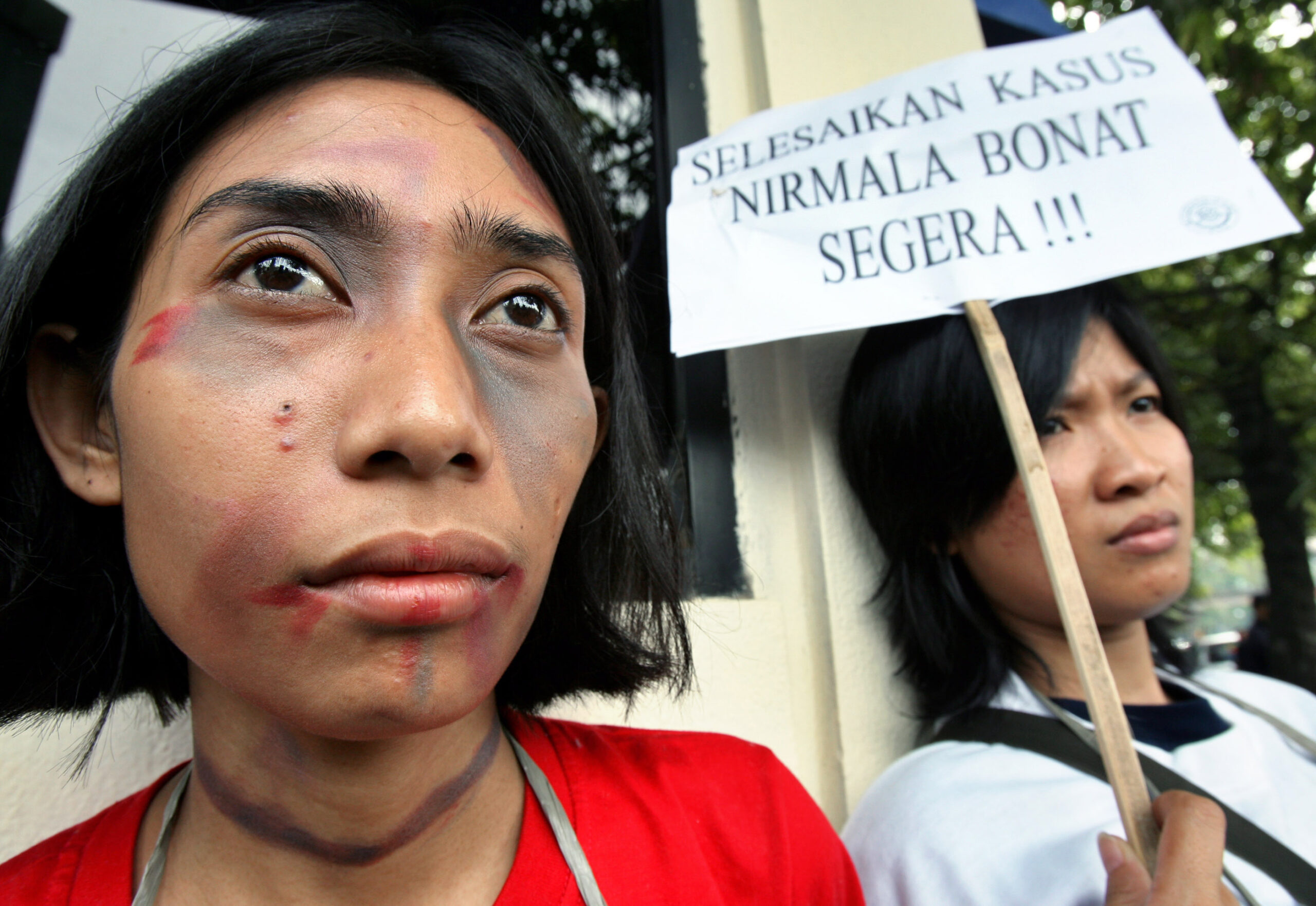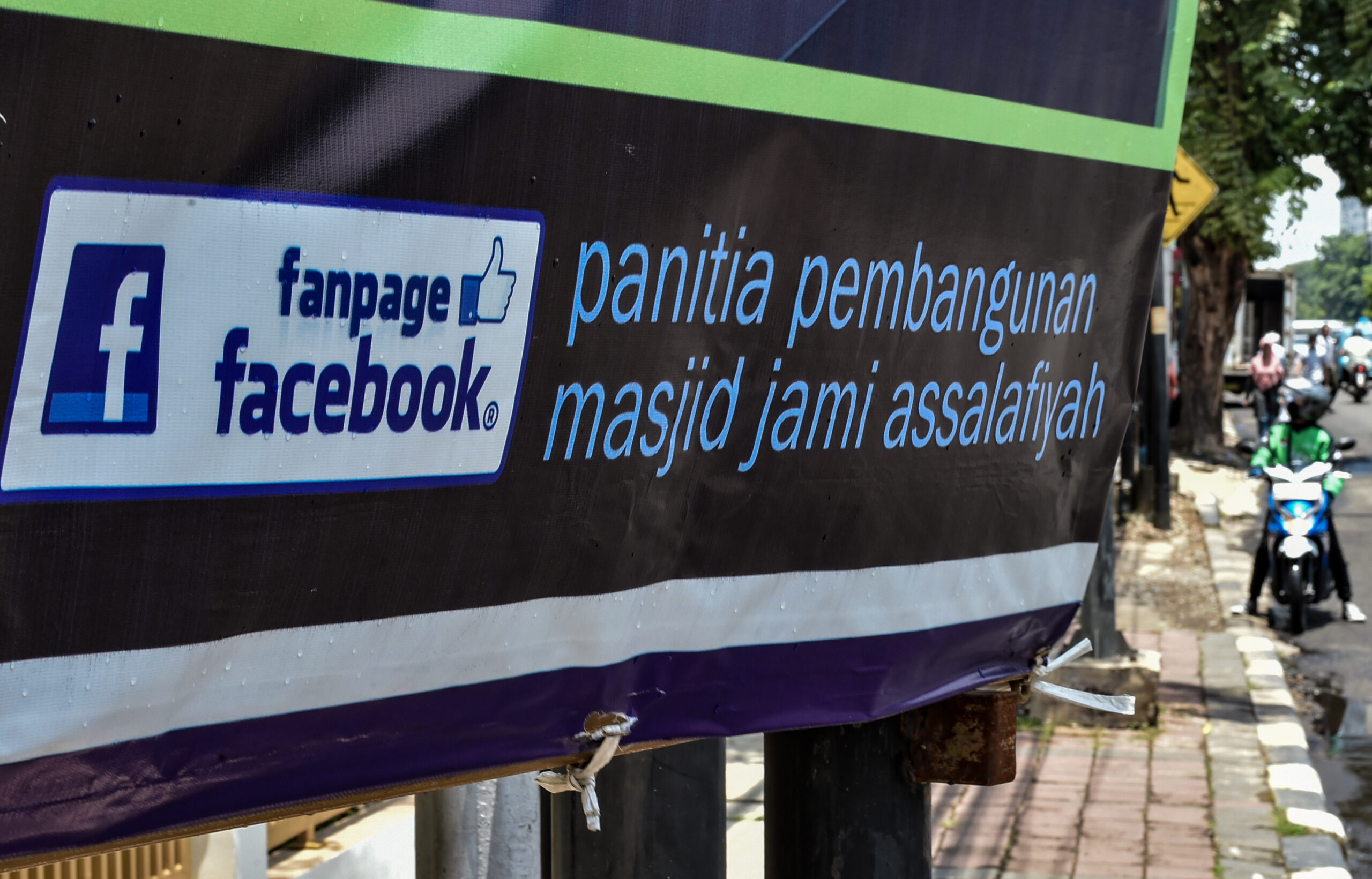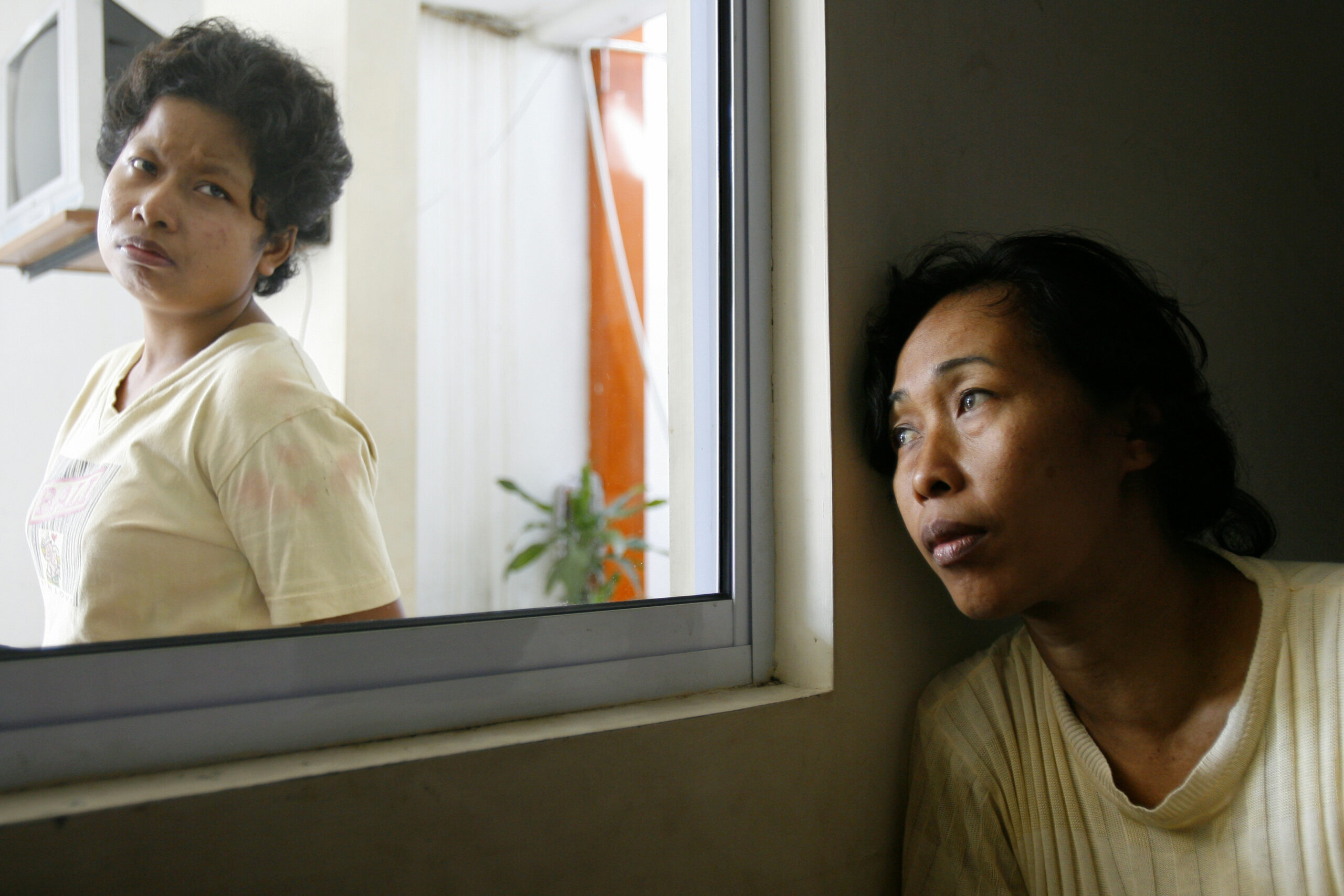It took Dina* four years before she could ask for a rest day from work. When her employer finally relented, she received one day off during the course of a month.
As a seasoned domestic worker in Malaysia, she left her native Indonesia in 2007, feeling that she was not in a position to negotiate for a holiday or even own a mobile phone, let alone ask for a weekly rest day. Ultimately, she didn’t know she had a right to these basic job benefits in Malaysia.
“To ask for a single day off was a struggle,” said the 46-year-old. “All I knew was that at least I’m not being abused. At least I received my salary—even if I don’t get to manage the money myself since it is sent straight home.”
In recent months, there have been shifts in policies and discussions between Indonesia and Malaysia governments to improve the welfare of Indonesian domestic workers in the country.
But domestic workers are often not in a position of power to negotiate their employment contract to demand their rights. Often, workers end up agreeing to terms that do not offer them basic employment rights such as designated rest days and in some cases can sign agreements that could violate their human rights. But some groups of Indonesian domestic workers are creating ripples on social media to educate and empower fellow Malaysian-based workers to speak up for their rights.

Malaysia is home to an estimated 100,000 domestic workers, where according to a 2019 World Bank report, they form 7% of migrant employees in Malaysia. The country is known for its string of controversies when it comes to its treatment of migrant domestic workers. As recently as June, the Malaysian court acquitted employer Ambika MA Shanmugan on murder charges after her Indonesian domestic worker, Adelina Lisao, was found dead from multiple infected injuries in 2018.
After the Indonesian government imposed a temporary freeze on sending domestic workers to Malaysia in July, both countries’ governments agreed for a more integrated recruitment channel known as One Channel System (OCS). In April, human resources minister M Saravanan stated that domestic workers from Indonesia should be paid a minimum monthly wage of $319.01 (RM1,500).
Yet despite these shifts and a 2022 amendment that replaces the archaic legal term “domestic servants” with “domestic employees”, Malaysia’s labour laws under the First Schedule of the Employment Act 1955—continue to exclude domestic workers from rest days, maternity protection, conditions of service and termination.
“The mindset from employers is that they feel they have bought us,” Dina said. “And if they ‘bought’ us with a high fee, then they feel they hold all of our rights. So they can do whatever they want with us.”
As migrant workers encounter unregulated syndicates, harsh immigration policies, and abusive recruitment agents and employers, having the necessary knowledge and self-awareness about basic labour rights would help prevent risks of exploitation.
To improve domestic workers’ labour rights, one locally led Kuala Lumpur-based group, Indonesian Migrant Domestic Workers Association in Malaysia, known as PERTIMIG, an independent organisation formed in 2019 by domestic workers that advocates for decent work and welfare for domestic workers in Malaysia. Currently, it has over 120 active members across the country.
When Dina purchased her first phone and registered on Facebook in 2010, she discovered the group and suddenly felt less alone. She connected with other migrant women in similar situations and they exchanged stories about the strains of working under constant surveillance, mishaps at work, withheld salary in some cases and then stories of home and hope.
“The more I attended sessions like theirs, the more I got curious,” Dina said. “I learnt that many other domestic workers even beyond Selangor are facing either similar situations as mine, or worse. There are people who have not received their salary for years!”
Indonesia has some 129.85 million Facebook users today, the third highest number in the world. The social media platform has become a space for domestic workers to educate, advocate and share their experiences with each other in a country where 92% of migrants own a mobile phone.

In January, several domestic worker’s groups organised a social media campaign to videotape themselves on their phones, clanging their woks and kitchen utensils in the midst of discussions between the Indonesian and Malaysian governments to acknowledge them as official workers and set higher minimum wages.
During the pandemic, PERTIMIG actively organised online classes that can be accessed through the phone, along with live-streamed skills training events such as design classes using graphic design tool Canva, weekly English and public speaking classes, and financial literacy training for women migrant workers that included assessing their own finances and savings in Malaysia.
A PERTIMIG coordinating member who asked to only be identified as Rara said that efforts such as the launch of their first short film, Rasa dan Asa, documenting domestic workers’ experiences in Malaysia at the Freedom Festival in September reflects the progress of its members so far.
“You can feel the impact when they see their videos and see themselves on screen. I’ve also personally seen the shift for those who were shy and never spoke up before. Now, they are able to speak, they’re more active in the organisation,” she said.
“Our main purpose is to educate our peers about how to empower themselves without putting themselves down,” she added. “We want them to understand that we’re the same. Even when animals are caged, they get stressed. What about us humans?”
According to Rara, skills training such as English classes serve to raise their confidence in negotiating for better rights with their employers. PERTIMIG organises classes that vary in its theme each week.
Rara shared that the organisation holds classes on workers rights and mental wellbeing, addressing the mental and physical labour a worker faces working long hours and living in close proximity with their employers.
“I have heard from many friends of how their employers let them go, even after being employed for 15 years,” Rara said. “The reason given was that it was due to a lockdown. That is why it is urgent for us to really help educate them, not let them be directionless. That’s why we organise classes and platforms that you can see on our Facebook page.”
The obstacles domestic workers face are clear, especially for those who have worked in the industry for years. For Dina, one way to overcome adversity is by helping each other.

“We learn about the struggles of others like us and it’s only natural for us to want to contribute and raise each other up,” Dina said. “We do have fun, but we also talk about gender, leadership, and how to better organise and educate ourselves.”
“My heart was moved, and I grew comfortable enough to contribute my experience and skills to raise and encourage those who face issues here.”
Another PERTIMIG member, Mardiyah* resounded these sentiments.
“I’ve personally encountered scenarios where I’ve been misled about promised jobs and salary. That’s how I first arrived in Malaysia. I was promised $421.59 (RM 2,000) to work in a restaurant, but when I arrived, I was trafficked by my friend to work as a domestic worker and I got paid only $252.95 (RM 1,200).”
Mardiyah finds solidarity with her peers and actively shares her experiences online whenever she sees a domestic worker seeking help. She works closely with the team that handles the hotline and observed how in times of distress, social media becomes an important form of community network for her peers.
“Now, I feel moved enough to reach out to others on Facebook. When I see a domestic worker seeking help in online groups, I message them privately to share the risks of sharing their information online, and I introduce them to these social media groups and workers organisations.”
While organisations such as PERTIMIG make use of social media platforms like Facebook as their main space for advocacy, the members share that there may be some challenges when it comes to access.
Working in an often socially isolated space, mobile phones often become a site for seeking information and contact with the outside world. However, employers may restrict their use of phones, seeing them as interfering with their work. According to research conducted in the region, this may cause a considerable strain to their mental health and sense of autonomy, leading to feelings of anxiety and having a lack of social support.
“Working in a domestic private setting makes it difficult for domestic workers to gain a standard of decent work,” said Lita Anggraini, coordinator of National Network for Domestic Workers Advocacy (Jala PRT), a network of domestic workers organisations across Indonesia. Her group also conducts a combination of online and offline activities for capacity building and training, with a 90% of its focus on platforms such as Facebook and WhatsApp.
Operating in a domestic space means that surveillance for domestic workers can occur on two levels, according to gender and labour migration researcher Patricia Yocie Hierofani, from Uppsala University, Sweden.
On an individual level, workers living with their employers are directly observed and monitored in person or digitally, she noted. However, “the co-presence, nevertheless, was sufficient to cause the workers to be on alert.”
Hierofani also underlined the structural and systemic limitations that a domestic worker must endure. “The domestic worker’s visa is tied to the employer…this regulation facilitates, thereafter, restrictions of mobility at an individual level,” she said, sharing examples of how employers kept their workers’ passports or restricted their movement outside of the home.
Confiscating an employees passport or forcing them pay off extremely high loan payments can amount to debt bondage, a form of modern day slavery, experts say.
Hierofani also believes that technology can be useful for domestic workers who do have the means to assist their peers.
“We have seen examples in other countries, such as Hong Kong, the US, the UK, even in Indonesia, where online activism by NGOs has created an impact on raising awareness and mobilising domestic workers digitally.”
“Technology and social media cross the physical boundaries and distance,” Hierofani added. “They allow migrant domestic workers to receive information and to maintain communication beyond their work- and living place.”
Ultimately, Dina and Rara hope that both Indonesia and Malaysia will eventually ratify the International Labour Organisation (ILO)’s Domestic Workers Convention No. 189 (C189), which underlines specific obligations and principles for governments to respect and protect domestic workers in their country.
“We are humans, and our hope is to remove discrimination against domestic workers in the law and instead have specific laws that can protect us as employers, just like any other occupation,” Dina said.
“But we also want to educate each other about how to empower ourselves,” Rara added. “We want to raise each other up, so that our community is self-confident enough to know that our work as domestic workers is important.”
*Pseudonyms have been used to protect the identity for fear of reprisal
This report was written and produced as part of a media skills development program delivered by the Thomson Reuters Foundation. The content is the sole responsibility of the author and the publisher.


